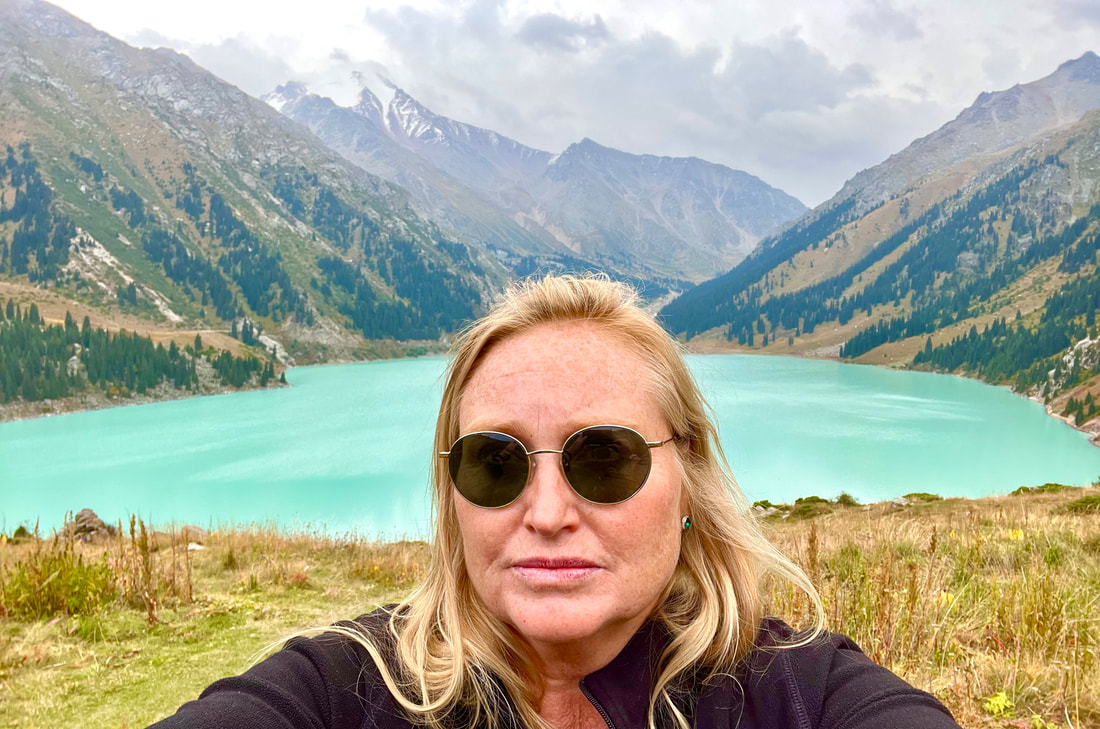|
Today is Thanksgiving, but not in Kyrgyzstan. There are no big tables of food and overstuffed bellies—this is one of the poorest countries in Asia. No one is counting their blessings because actually most people had more freedom before the latest regime, which has adopted Russia's media laws and even managed to make them stricter.
Bolot Temirov, above, is one of the most famous journalists in this country. Earlier this year, police tried to set him up with a planted bag of cannabis (still highly illegal here.) They charged him with using false documents to apply for a Kyrgyz passport. (Bolot is Kyrgyz). He also has a Russian passport because that's where the went to university. He seemed to get out of all that mess but then one court appealed the decision of another court, and it spelled a dangerous situation for Bolot. "The prosecutor wants to send me to prison for seven years or I leave the country," he told me. The night before he was due to appear in court, he texted me to say "I don't think they are taking me to jail." And they didn't. But they continued the hearing to yesterday and that's when everything changed. Bolot, 43, was dragged from court by police, and flown to Moscow. He has a wife and an 11-year-old son here. He has a team of reporters here. According to Bolot's lawyer quoted in one of the local media sites, Bolot's expulsion is forever. A native of Kyrgyzstan is deported to Russia.
Radio Europe's Kyrgyz site, known at Radio Azattyq, for two months. That means unless you have a VPN, you're not going to be able to see or read stories on that website. The Kyrgyz government did this citing that Azattyq had published false information after it reported stories about a conflict with neighboring Tajikistan that was not favorable to Kyrgyzstan. Then the government froze all the bank accounts of Azattyq. Reporters have not been paid for weeks.
In addition, several journalists have been arrested, including a woman who is pregnant and had to be rushed to the hospital. Meanwhile, the government is trying to push through a draconian media law that would require news websites to register with the government and make news organization list which foreign governments—read Western grants—are giving them money. There was a rally in support of independent media the day after the rally to shut them down. But for the most part it seems journalists are in retreat, afraid to say anything publicly for fear that the government will retaliate. Anyone who has battled with the government knows silence is not the way to combat a bully. The best leverage journalists have in the face of a crackdown is to speak up and explain to the public how limiting press freedoms affects their access to information. |
Fulbright in Central AsiaFrom March, 2022 to January of 2023, I was a Fulbright Scholar with the U.S. State Department in post-Soviet Central Asia. My previous Fulbright was in Ukraine. For the past six years, I have reported on journalists from post-Soviet countries who have experienced retaliation for reporting the truth. Archives
January 2023
|




 RSS Feed
RSS Feed
